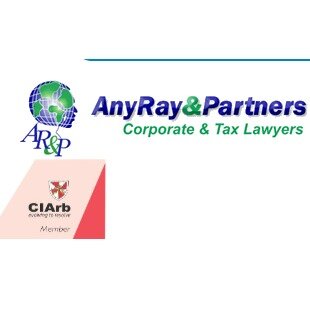Best Dependent Visa Lawyers in Ivory Coast
Share your needs with us, get contacted by law firms.
Free. Takes 2 min.
Or refine your search by selecting a city:
List of the best lawyers in Ivory Coast
About Dependent Visa Law in Ivory Coast:
Dependent visa in Ivory Coast allows family members of a foreign national who is a legal resident in the country to join them and live together. This type of visa is granted to spouses, children, and other dependents of the primary visa holder.
Why You May Need a Lawyer:
Seeking legal advice in the field of dependent visa in Ivory Coast is important to ensure that you understand the process, meet all requirements, and have the best chance of success. A lawyer can help you navigate the complex legal system, prepare and submit all necessary documentation, and represent you in case of any complications or challenges.
Local Laws Overview:
Local laws in Ivory Coast require dependent visa applicants to provide proof of their relationship with the primary visa holder, demonstrate financial stability, and meet other specific criteria. It is essential to carefully review and understand these laws to avoid any delays or denials in the visa application process.
Frequently Asked Questions:
1. What is a dependent visa?
A dependent visa is a type of visa that allows family members of a foreign national who is a legal resident in Ivory Coast to join them and live together.
2. Who is eligible for a dependent visa in Ivory Coast?
Spouses, children, and other dependents of the primary visa holder are eligible for a dependent visa in Ivory Coast.
3. What documents are required for a dependent visa application?
Documents required for a dependent visa application may include proof of relationship, financial stability, health insurance, and valid travel documents.
4. How long does it take to process a dependent visa application?
The processing time for a dependent visa application in Ivory Coast can vary, but it typically takes several weeks to a few months.
5. Can a dependent visa holder work in Ivory Coast?
Dependent visa holders in Ivory Coast are not usually allowed to work, unless they obtain a separate work permit.
6. What are the common reasons for dependent visa application denials?
Common reasons for dependent visa application denials in Ivory Coast include insufficient documentation, lack of financial stability, and failure to meet eligibility requirements.
7. Can a dependent visa holder apply for permanent residency in Ivory Coast?
Dependent visa holders may be able to apply for permanent residency in Ivory Coast after meeting certain residency requirements and conditions.
8. What should I do if my dependent visa application is denied?
If your dependent visa application is denied, you may have the option to appeal the decision or reapply with additional documentation or information.
9. Is it necessary to hire a lawyer for a dependent visa application in Ivory Coast?
While it is not mandatory to hire a lawyer for a dependent visa application in Ivory Coast, seeking legal advice can help ensure a smooth and successful application process.
10. How can I renew my dependent visa in Ivory Coast?
You can renew your dependent visa in Ivory Coast by submitting a renewal application before the expiration date, providing updated documents, and meeting all requirements for renewal.
Additional Resources:
For more information and assistance with dependent visa applications in Ivory Coast, you can contact the Ministry of Foreign Affairs or seek help from local immigration attorneys.
Next Steps:
If you need legal assistance with your dependent visa application in Ivory Coast, consider consulting with a qualified lawyer who specializes in immigration law. They can guide you through the process, assist with preparing your application, and represent you in case of any issues or challenges.
Lawzana helps you find the best lawyers and law firms in Ivory Coast through a curated and pre-screened list of qualified legal professionals. Our platform offers rankings and detailed profiles of attorneys and law firms, allowing you to compare based on practice areas, including Dependent Visa, experience, and client feedback.
Each profile includes a description of the firm's areas of practice, client reviews, team members and partners, year of establishment, spoken languages, office locations, contact information, social media presence, and any published articles or resources. Most firms on our platform speak English and are experienced in both local and international legal matters.
Get a quote from top-rated law firms in Ivory Coast — quickly, securely, and without unnecessary hassle.
Disclaimer:
The information provided on this page is for general informational purposes only and does not constitute legal advice. While we strive to ensure the accuracy and relevance of the content, legal information may change over time, and interpretations of the law can vary. You should always consult with a qualified legal professional for advice specific to your situation.
We disclaim all liability for actions taken or not taken based on the content of this page. If you believe any information is incorrect or outdated, please contact us, and we will review and update it where appropriate.
Browse dependent visa law firms by city in Ivory Coast
Refine your search by selecting a city.








